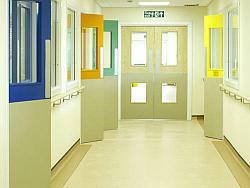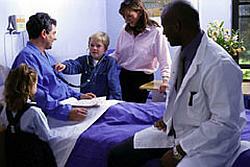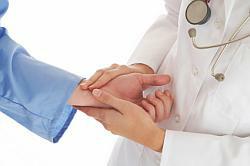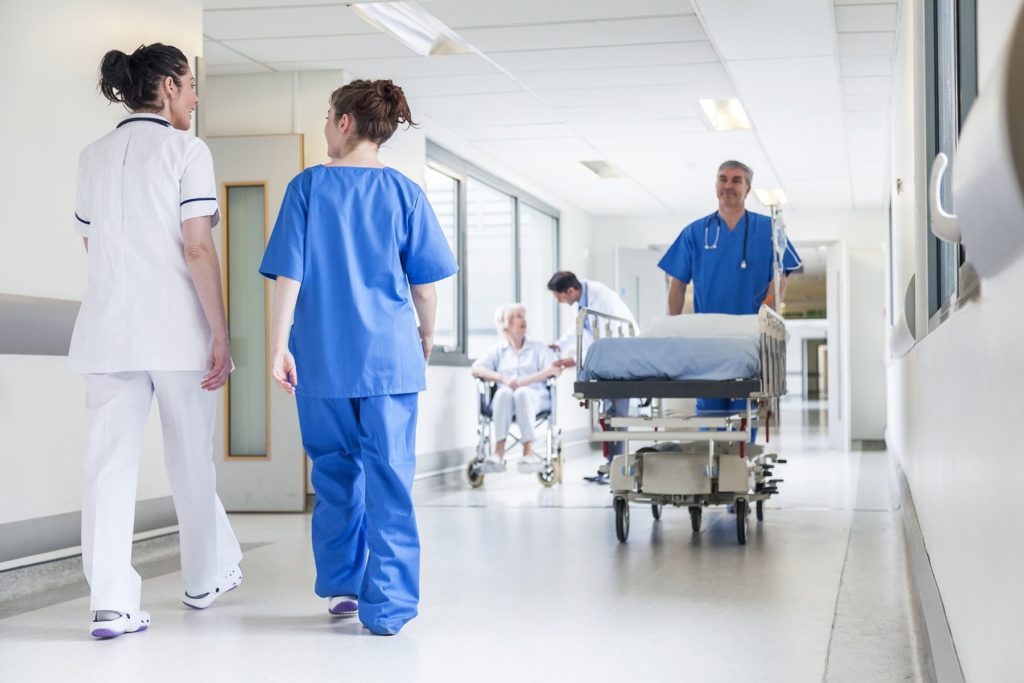North Cyprus operates a fairly modern state run healthcare system, albeit still a little behind the times in places. However, it is perfectly acceptable for the majority of the population, although expatriates may also prefer to have the addition of private health insurance if they can afford it.

First things first, and that is North Cyprus is at present not a member of the EU, and therefore the European Health Insurance Card (EHIC) will not be valid at any medical facility here, whether state or private.
North Cyprus has 4 general hospitals in Kyrenia, Lefkoşa, Güzelyurt and Famagusta – they are all well-equipped hospitals with modern facilities and equipment, as well as accident and emergency departments. The service and care the hospitals offer is at times a welcome break from the slow and sometimes mediocre healthcare systems in the rest of Europe, and the hospitals on the island are more than capable of dealing with any number of illnesses and emergency situations. You will often find that people’s experiences of treatment are positive and that they are full of praise for the hospital staff’s speed and professionalism.

If you require emergency treatment in North Cyprus then you will never be refused at a state hospital, often with no cost to yourself. However, this is not an ideal situation for an already under funded healthcare system, but nevertheless this is the way the system works at present.
If you do require a hospital stay however, then you will be charged by the hospital and rates are calculated on a daily basis. It is also worth noting that a patient is basically reliant on visitors and family and/or appointed carers to provide them with general care, such as cleaning and replenishment of clothing as this is not provided by the state hospital system in Northern Cyprus. Nowadays a private company is sub-contracted to perform all non-medical tasks such as cleaning, washing of hospital bedding and also security.
 If you are working in North Cyprus and have a valid work permit, you will be paying into the state system by way of social security and pension contributions, thus entitling you to free healthcare by the state. You will be provided with a medical card, requiring re-certifying every 6 months at your local social security office, and this will entitle you to completely free medical care at all state run hospitals. It is also worth noting that a medical card can be used at high street pharmacies to obtain lower prices for certain prescription medicines.
If you are working in North Cyprus and have a valid work permit, you will be paying into the state system by way of social security and pension contributions, thus entitling you to free healthcare by the state. You will be provided with a medical card, requiring re-certifying every 6 months at your local social security office, and this will entitle you to completely free medical care at all state run hospitals. It is also worth noting that a medical card can be used at high street pharmacies to obtain lower prices for certain prescription medicines.
State hospitals also provide services such as blood donation, although the system of supplying and obtaining blood is a sometimes stressful situation. Each state run hospital keeps a supply of blood readily available for emergency purposes; however there is a larger blood bank which holds the main supply at the Lefkoşa hospital. If blood is required for a scheduled operation or for long term treatment then you are required to return the blood via donations from yourself and perhaps your friends and family to balance the amount you took. It is therefore very obvious that hospitals  require a constant source of donated blood and rely heavily on donations.
require a constant source of donated blood and rely heavily on donations.
Lefkoşa hospital is also an important centre for Thalassemia sufferers – this is a genetic blood disease prevalent in the Mediterranean – who need to attend for regular blood transfusions.
All in all the state run hospital system is adequate, pretty modern, but at the same time it needs further investment to be able to cope with the natural increase in population. Some would still say that it is more than equivalent to current European standards, and from our own experiences we would tend to agree.
Useful contact numbers are: –
Ambulance – 112
Kyrenia Hospital – +90 392 815 2266
Lefkoşa Hospital – +90 392 228 5441
Famagusta Hospital – +90 392 366 2876
Güzelyurt Hospital – +90 392 714 2125
Health Care Advice from 8am to 11pm – +90 (0)392 815 4929 or +90 (0)542 886 2955
If you would like to find out more about the other different types of healthcare available in North Cyprus please visit our Section on Healthcare.



